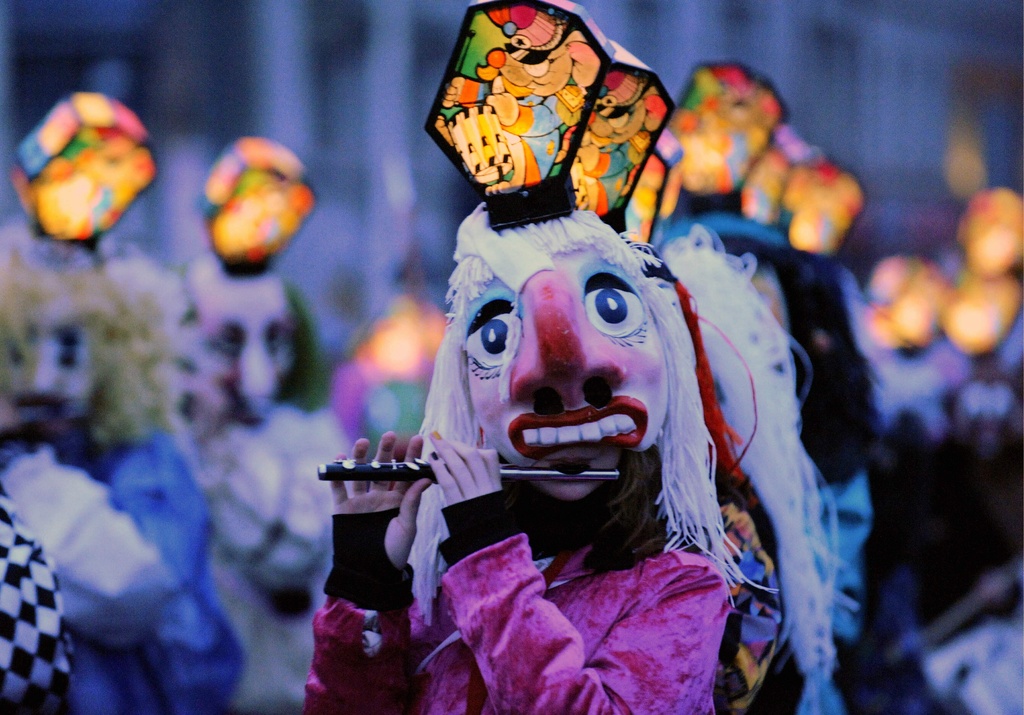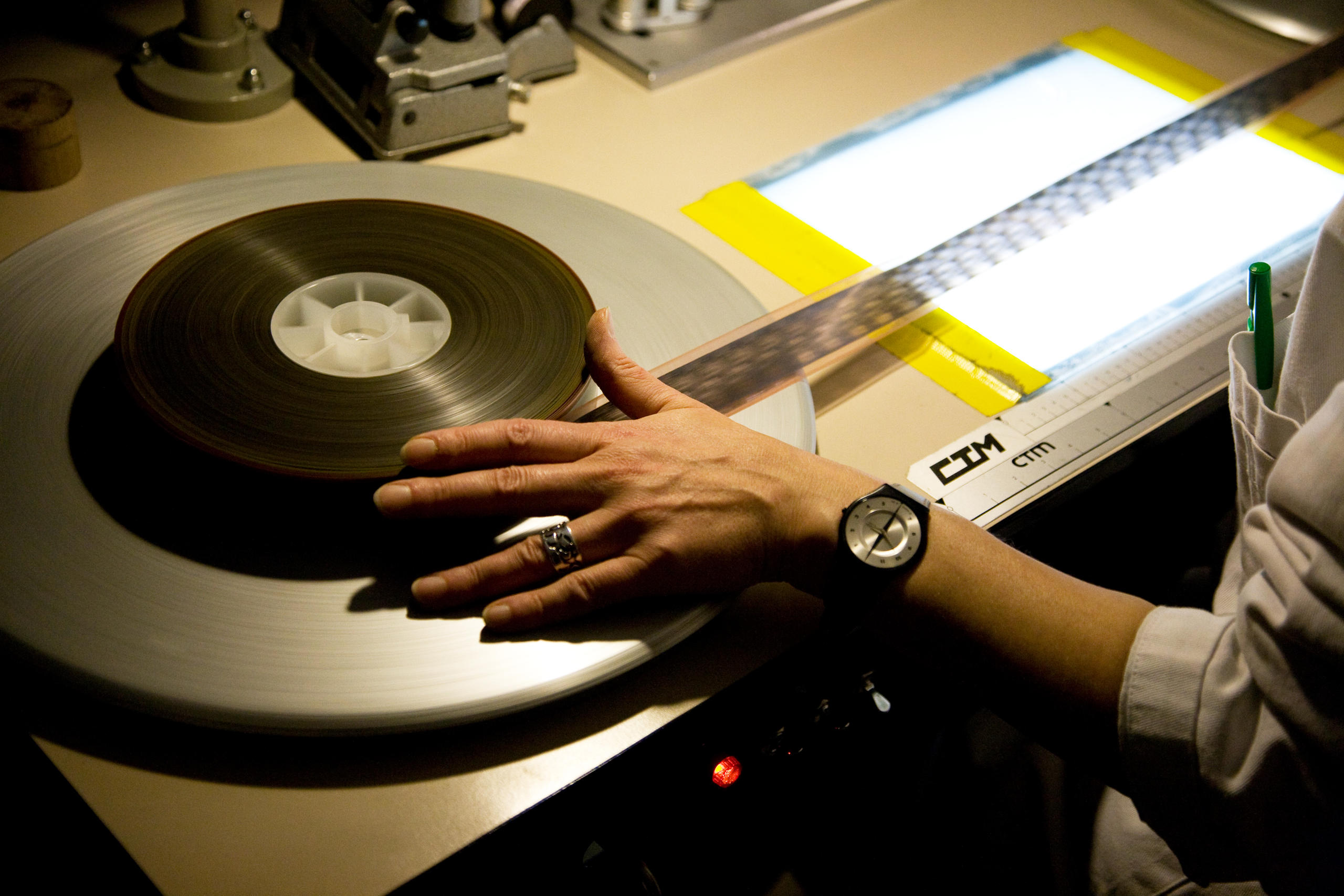Cultural policy takes a new direction

Swiss cultural policy has received a boost, with parliament approving a four-year culture budget worth SFr669.5 million ($742 million) on Thursday.
The plan is SFr31.6 million more than the budget proposed by the cabinet and will see significant increases in funding for cinema and the protection of heritage and monuments in particular.
But in a put-down to one of Switzerland’s leading cultural bodies, the Swiss arts council Pro Helvetia was denied additional funding despite its argument that it has been allocated specific new tasks such as supporting photography and digital arts.
Setting the culture budget for 2012-2015 is the first time the cabinet and parliament have issued a global four-year policy on support for cultural activities, and is a result of the introduction of the new law to promote culture. This comes into effect from January.
“It really is the beginning of a global culture policy,” director of the Federal Culture Office Jean-Frédéric Jauslin told swissinfo.ch.
Under the new law, federal authorities will have more input into cultural activities than ever before, working more closely with the cantons, cities and towns, who have traditionally been primarily responsible for supporting culture.
Political involvement
In addition to agreeing to increase financing for cinema and the protection of cultural heritage and monuments by a total SFr30 million, parliament also threw its weight behind smaller, local projects.
Basel’s Swiss Museum of Sport will get an extra SFr600,000 and the Swiss Alpine Museum in Bern will get SFr500,000, for example.
Pro Helvetia director Pius Knüsel said that while there were clear differences between the cultural concepts of the left and right of politics, it was legitimate for parliament to debate the role of cultural organisations which, in the case of Pro Helvetia, are entirely funded by the taxpayer.
“The problem is that we got a lot of new tasks, like supporting Swiss photography or digital arts, but the parliament didn’t allocate a proportional budget and this is the big debate that has been going on,” Knüsel told swissinfo.ch, adding that the organisation is effectively held hostage to the whims of parliament.
For anthropologist Florence Graezer Bideau, a lecturer at the Federal Institute of Technology Lausanne, the setting of the federal budget for culture missed an opportunity to open up public debate about Swiss culture.
“Unfortunately, this new law hasn’t triggered a real debate on the issue of Swiss national culture,” Graezer Bideau told swissinfo.
“The cultural message is more or less a message that explains the new budget and how it is divided between the various groups… there isn’t really anything new besides the mention of digital art and intangible cultural heritage. I think many cultural specialists were disappointed about that.”
Defining culture
Under the law to encourage culture, new mechanisms will be created for dialogue between the cantons and federal authorities on cultural issues and access to cultural facilities and activities – theatre, music, film – for young people will be improved.
“We also want to modify the international image of Switzerland,” said Jauslin, pointing to the Nations Brand Index which revealed that while foreigners recognise Switzerland for its finance industry, mountains and chocolate, “they don’t really think of us a cultural country”.
So what is Swiss culture? Knüsel said that the past 20 years of globalisation had forced a change away from the view of Swiss culture as something that created identity and codified the Swiss spirit.
“Such a definition of Swiss arts and culture cannot be defended anymore,” Knüsel said.
“We start from a very simple definition. Swiss culture is any type of artistic work that emanates from people having a Swiss passport or living and working in the country.”
Graezer Bideau said Swiss culture was difficult to define because it is a mix of modernity and tradition, of high and popular, of urban and rural, religious and linguistic differences. The federal state’s lack of power does not help matters any.
But she said the new law, along with Switzerland’s ratification of the Unesco Convention for the Safeguarding of Intangible Cultural Heritage, sent a message that the country was looking to take a “new perspective” on issues of culture and heritage.
“I think that this new law tries to support the cultural diversity and intangible cultural heritage is included in this,” she said.
“It’s clearly seen in the cultural message that local associations and amateurs will be supported, particularly for better transmission and dissemination among young generations.”
Some 200,000 people are employed in Switzerland’s culture sector, the equivalent of 41,600 full-time jobs.
Public spending on culture, including the SFr669.5 million from the federal purse, amounts to some SFr2.4 billion over four years.
It is estimated that private sector contributions, including some 12,000 private foundations and corporate sponsorship for the arts and culture, amount to between SFr1–1.5 billion a year.
“More people work in culture in Switzerland than work in banks and the annual contribution to GDP of culture is about SFr17.7 billion, which is more than the watch industry, so it’s very important to the economy,” according to Culture Office Director Jean-Frédéric Jauslin.
Passed by parliament in December 2009, the law aims to:
– Clearly define federal culture policy in relation to cantons and cities
– Divide responsibilities between the federal authorities and Pro Helvetia
– Define Swiss cultural policy guidelines
– Provide funding for cultural promotion
– Boost promotional activities at the federal level
– Give the Culture Office new tasks in promoting musical education and preserving cultural heritage
– Modernise Pro Helvetia
In the current budget four-year budget, 2008-2011, Pro Helvetia allocated around SFr25 million a year to cultural projects, 43% in Switzerland, and 57% abroad.
68% of operational funds support third party projects, 17% support liaison offices and cultural centres, 12% for programmes, 3% for information about cultural activities.
Pro Helvetia receives around 3,300 grant applications per year, and approves about 52%. The maximum grant is around SFr300,000 for a large scale-project involving several disciplines.

In compliance with the JTI standards
More: SWI swissinfo.ch certified by the Journalism Trust Initiative





You can find an overview of ongoing debates with our journalists here. Please join us!
If you want to start a conversation about a topic raised in this article or want to report factual errors, email us at english@swissinfo.ch.